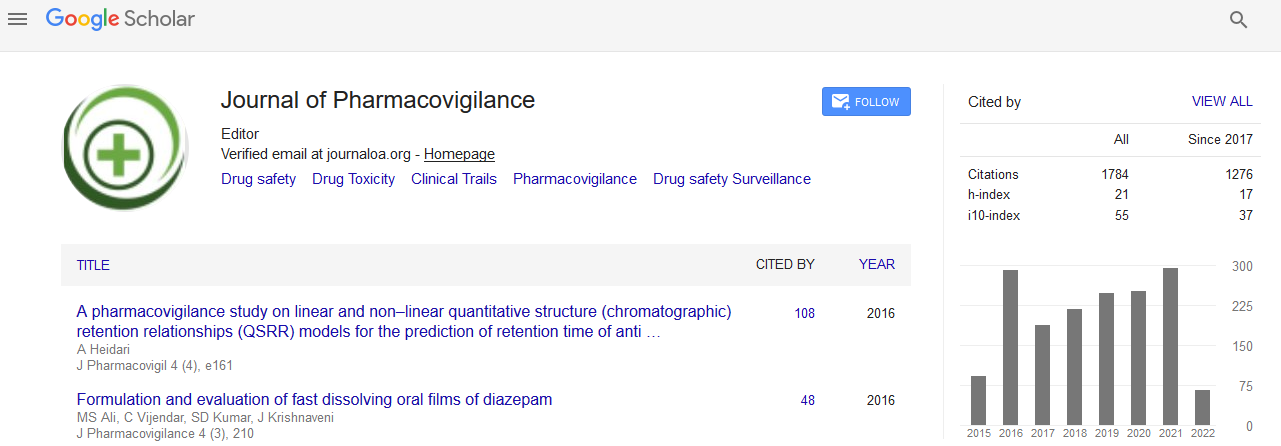Indexed In
- Open J Gate
- JournalTOCs
- The Global Impact Factor (GIF)
- RefSeek
- Hamdard University
- EBSCO A-Z
- OCLC- WorldCat
- Publons
- Euro Pub
- Google Scholar
Useful Links
Share This Page
Journal Flyer

Open Access Journals
- Agri and Aquaculture
- Biochemistry
- Bioinformatics & Systems Biology
- Business & Management
- Chemistry
- Clinical Sciences
- Engineering
- Food & Nutrition
- General Science
- Genetics & Molecular Biology
- Immunology & Microbiology
- Medical Sciences
- Neuroscience & Psychology
- Nursing & Health Care
- Pharmaceutical Sciences
Epidemiologic study based on Adverse Drug Events in patients visiting Emergency Department: A retrospective Observational Study in Three University Hospital
6th Pharmacovigilance Congress
September 28-30, 2016 Toronto, Canada
Min-Gyu Kang, Ju-Yeun Lee, Tae-Ho Lim, Byoung Whui Choi, Chan-Woong Kim, Baegeum Kim, Ho Joo Yoon, Sang-Heon Kim, and Jae-Woo Jung
1Department of Internal Medicine, Chungbuk National University College of Medicine, Cheongju, Korea
Department of Internal Medicine, Chung-Ang University College of Medicine, Seoul, Korea
College of Pharmacy, Institute of Pharmaceutical Sc
Posters & Accepted Abstracts: J Pharmacovigil
Abstract:
Background: Adverse drug events (ADE) has been recognized as an important cause of serious morbidity and mortality. Severe cases of ADE requires immediate medical treatment including Emergency Department (ED) visits. However, the epidemiologic features of ADE leading to ED visits have not been well described in Korea. We aimed to estimate the prevalence and features of ADE leading to ED visits. Methods: In this retrospective observational study, we reviewed all the cases of ED visits for six months, from July 2014 to December 2014, in two university hospitals in Seoul and a university hospital in Cheongju in South Korea. By reviewing all the medical records including National Emergency Department Information System Database, we identified cases of ADE and assessed the causative drugs, severity, types and preventability. Results: The most common causative drugs of ADE was antineoplastic drugs, insulin and antidiabetic drugs, antithrombic or antiplatelet agents and vaccines. In terms of system of clinical manifestations, gastrointestinal, skin, body as a whole, neurologic and metabolic/nutritional symptoms were most frequent. The most common diagnoses of ADE were complication of insulin (and antidiabetic drugs), complication of antithrombic (or antiplatelet) agents, dizziness, generalized skin rash, gastritis, and neutropenia Conclusion: The prevalence of ADE in ED visits was common Korea and higher in older adults and females. Many cases of ADEs were preventable and predictable. Further prospective study is needed to evaluate the nationwide burden of ADE leading to ED visits.
Biography :
Dr. Min-Gyu Kang is working at Chungbuk National University College of Medicine, Cheongju, Korea.
Email: irreversibly@gmail.com


